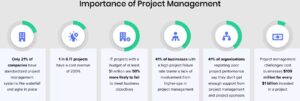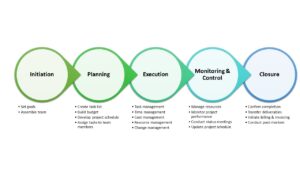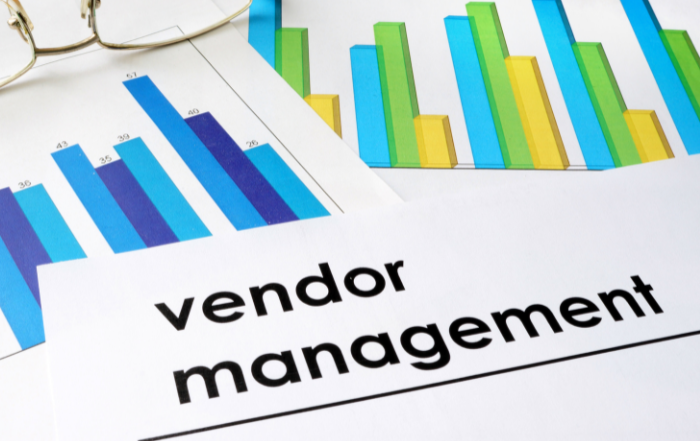8 Salesforce Project Management Best Practices Teams Should Use
Do you want to improve your team’s Salesforce project management? Strong project management is essential to Salesforce success. You can improve your success rate and reduce costs by following these Salesforce project management best practices.
Why Project Management is Essential to Salesforce Success
Complex sales projects require detailed project management. These are the kinds of sales that entail more than just a few emails or phone calls; these sales consist of a lengthier and more complicated customer journey, often involving multiple sales reps and other departments in your company.
Properly managing these projects is essential in closing the sale and keeping the customer happy. While it’s easy to let things slip between the cracks on these complex deals, doing so jeopardizes the project’s success – and the sale’s profitability.
According to the Project Management Institute, 11.4% of all resources are wasted because of poor project management. Contributing to this problem is the fact that, according to the State of Project Management 2020 report, only 43% of organizations consistently complete their projects on budget – and only 29% mostly complete their projects on time.
Better project management can change all of that.
Understanding Project Management in Salesforce
Project management in Salesforce, as it is for any project, consists of five distinct stages:
- Initiation
- Planning
- Execution
- Monitoring & Control
- Closure
You can use Salesforce itself to manage your projects, although it isn’t as robust as dedicated project management software. You can enhance Salesforce with project management add-ons, available in the Salesforce AppExchange, or integrate a freestanding project management program into the Salesforce CRM. (The following video explains how to use Salesforce for project management.)
Salesforce Project Management Best Practices
To ensure success throughout the entire project, your team should follow an established set of project management best practices. These best practices will help you set reasonable expectations, keep your project on track, and deliver your project on time and on budget.
Define Desired Outcomes
Clearly define the desired outcomes for your project up-front. That means more than just getting the customer to say “yes.” The outcome may include getting the customer to sign a recurring contract or commit to additional services. Define your goals up-front so you can properly plan how to get there.
Get Stakeholder Approval
All large sales projects need the approval of sales management – and sometimes upper company management. If you need assistance from other departments, such as marketing or production, make sure you get them to buy in as well.
Conduct Capacity Planning
Do you have the capacity to complete the project as planned? You need to evaluate both task-based and time-based capacity – that is, the capacity to perform necessary tasks and the time to get them done. The schedule you create should reflect the available staff and resource capacities.
Obtain the Necessary Resources
Concurrent with capacity planning, you need to determine what resources you need to complete this project. This may include marketing materials, CAD drawings, and other items from supporting departments. It may include travel and entertainment expenses. It may include the time required of other staff and departments to complete the quote or complete other activities. Think through your requirements carefully; you probably need more resources than you might think initially (Reviewing similar deals in Salesforce provides useful information).
Build a Strong Team
Some of the most valuableresources for completing your project are human resources. You don’t close big deals on your own; completing a complex project requires a team of people with the right mix of skills. Assemble your team with an eye on each individual’s strengths and weaknesses, then clearly define each person’s roles and responsibilities. Make sure that all team members know what’s required of them – and keep in constant contact to make sure they deliver.
Communicate Frequently
It’s essential that you keep everyone up to date on your project’s progress. That includes team members and other key stakeholders, both in management and in other departments. The more people know the better they’ll be able to contribute.
Set Frequent Milestones
It won’t do to set one single deadline for the completion of the project. You need to break the project into smaller, more easily achievable segments, each with its clearly defined milestones. These milestones might include the following activities:
- Initial outreach
- Requirements gathering
- Final configuration
- Delivery of quote
- Follow-up calls or meeting
- Receipt of order
- Order processing
- Product delivery
- Post-sale follow-up and support
Each milestone should have its own separate due dates and need to be completed separately.
Leverage Salesforce Automation
Salesforce offers a variety of features and functions that help you successfully manage and complete complex sales projects. The most useful tools for this purpose are Salesforce’s automation tools, which help you:
- Keep team members on schedule
- Ensure timely deliverables from other departments
- Track time and expenses
- Manage the contract process
- Reduce quoting and invoicing errors
- Ensure you get paid on time
Whether you use Salesforce as your sole project management tool or in conjunction with third-party project management apps, Salesforce helps you manage all the pieces and parts that comprise a complex sales deal. Taking advantage of all the automation that Salesforce offers will make your project management job that much easier.
Let Rainmaker Help You Implement Project Management for Salesforce
The Salesforce experts at Rainmaker help you get the most from Salesforce project management. We have the experience to facilitate your project management integration and make sure your Salesforce projects come in on schedule and on budget. We also offer a wide variety of Salesforce Managed Services to help your company grow sales, improve customer service, and make your business more profitable.
Contact Rainmaker today to learn more about Salesforce project management!








